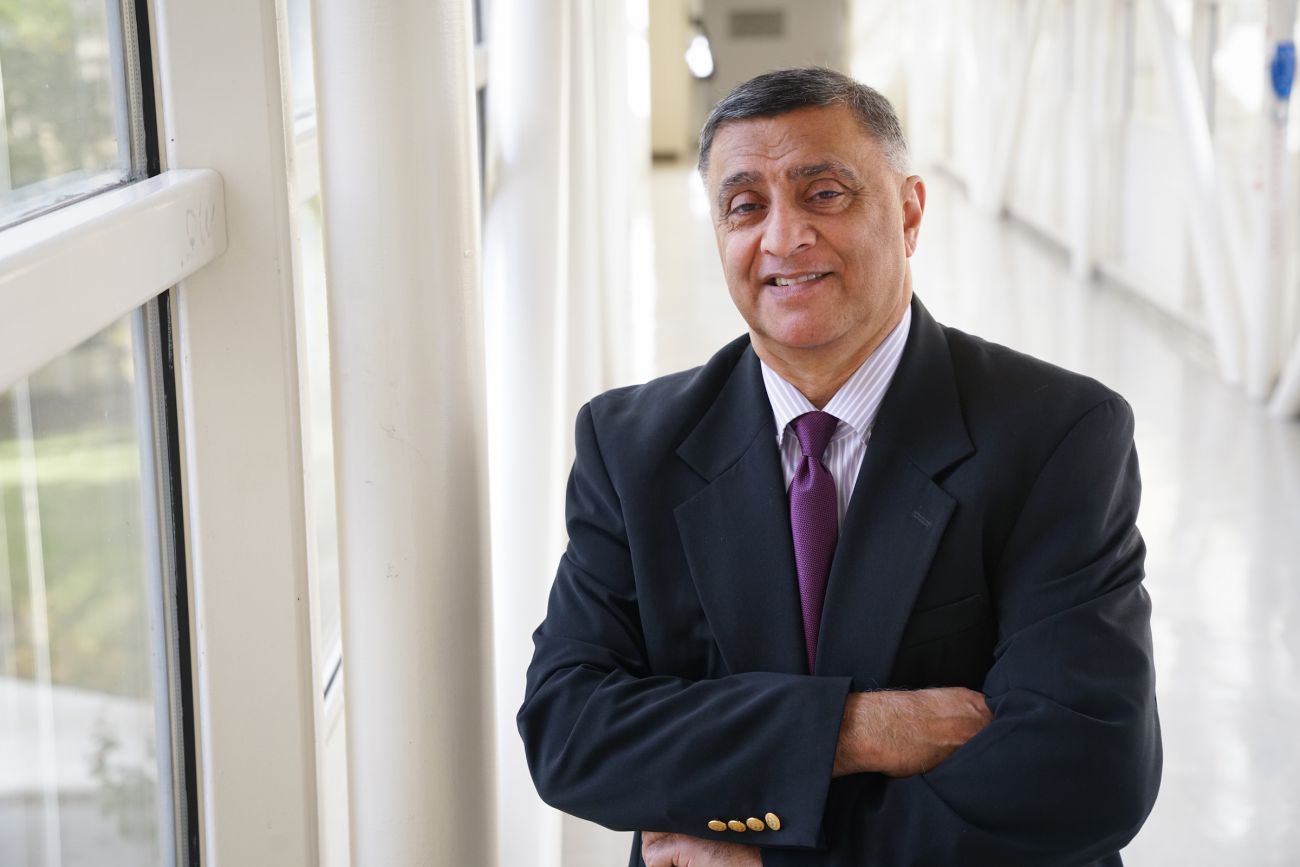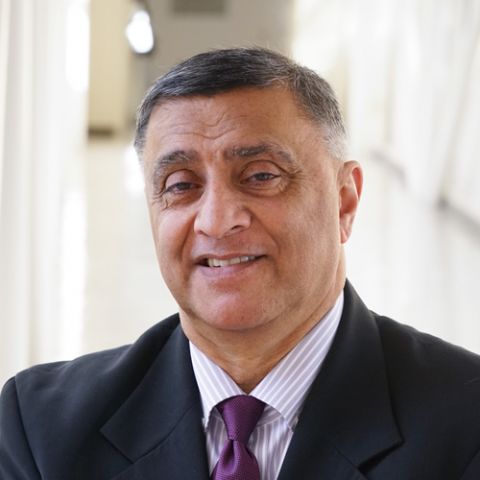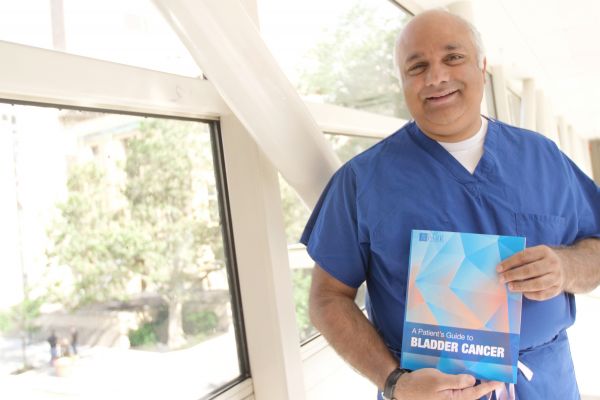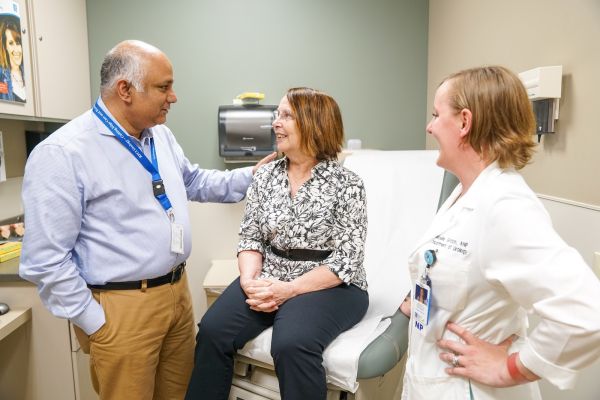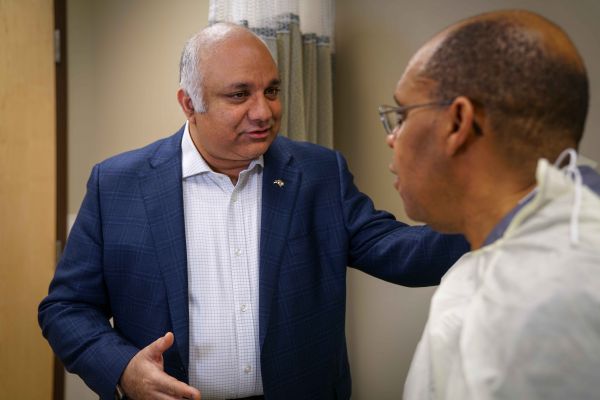Undergoing chemotherapy before cystectomy improves prognosis
Many types of cancer are best treated using a combination of therapies, which may include surgery, cancer drugs and chemotherapy, radiation therapy and other approaches. Receiving each one at the right time and in the right sequence can have a great impact on the treatment plan’s success.
When it comes to bladder cancer that has invaded the muscle layer of the bladder (generally stage II or higher), surgical treatment to remove the bladder (called radical cystectomy) is nearly always part of the treatment plan, and it results in a cure rate of about 50 to 60%. But that means that in 40 to 50% of patients, the cancer comes back. With many cancers, surgery to remove the tumor is followed by chemotherapy (called adjuvant therapy) to mop up any remaining microscopic disease or cancer cells that may circulate in the body. But for muscle-invasive bladder cancer, that order is reversed. We now know that having patients undergo chemotherapy before surgery (called neoadjuvant therapy) may increase the cure rate by as much as 10 to 30%.
Never miss another Cancer Talk blog!
Sign up to receive our monthly Cancer Talk e-newsletter.
Sign up!Patients eligible for neoadjuvant chemotherapy typically undergo an infusion every 3 weeks for 3 to 4 months. Surgery to remove the bladder is then scheduled 4 to 6 weeks afterwards. Delaying surgery may seem counterintuitive, but sequencing treatment in this order allows us to attack the most dangerous part of the cancer first: malignant cells that potentially have already escaped the bladder. Then, we focus on the primary site.
Historically, the number of bladder cancer patients who receive neoadjuvant chemotherapy is very low. Even as evidence of improved survival mounts, not enough patients are considered for it. At Roswell Park, we evaluate nearly all (greater than 90%) of our bladder cancer patients to determine whether they are good candidates for chemotherapy before surgery. We find 40% of them eligible, which is well above the national average. (A patient must be medically fit enough and have good kidney and other organ function in order to tolerate side effects of cisplatin-based chemotherapy.)
That’s why it’s so important to be treated by a team of physicians at the outset. At Roswell Park, our patients’ individual treatment plans are developed with input from oncologists of various specialties, including urology, medicine and radiation. In cases of muscle-invasive bladder cancer, patients see both a urologic oncologist (who performs the surgery) and a medical oncologist (who determines whether chemotherapy or other cancer drugs would be of benefit) on the same day, in the same building. Having these specialists work together on-site is a unique feature of a comprehensive cancer center.
